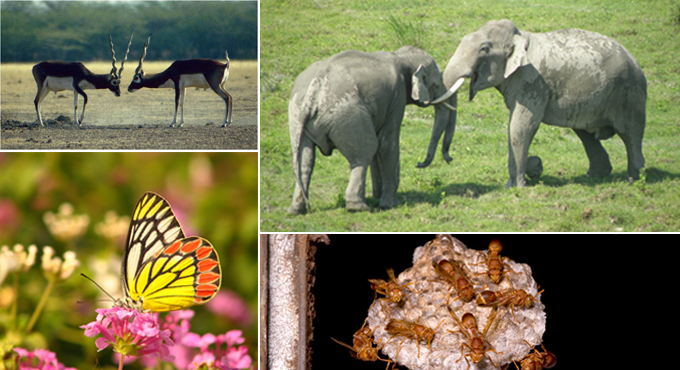Behaviour

Faculty and students of CES address behavioural questions from both mechanistic and functional perspectives using multi-disciplinary and integrative approaches. Topics addressed include animal communication (acoustic, visual, and chemical), behavioural and physiological responses to environmental stimuli (such as stress), mating systems (mate finding and mate choice), sexual selection, multimodal signaling using chemicals and vision between plants and animals, interaction among individual organisms to form higher levels of organization such as social-and/or super-organisms (e.g., lekking, collective movement patterns, cooperation and altruism), and how these individual and group behaviours in turn alter at higher scales such as populations and communities. Evolutionary theory forms the unifying theme for these different aspects of our behavioural research. Therefore, studies that integrate mechanistic and functional approaches are strongly encouraged.
Faculty working in areas related to behavioural research are:
Rohini Balakrishnan: Acoustic communication networks; Sensory ecology of mate-finding and mate choice.
Renee M. Borges: Sensory biology especially chemoreception, olfaction, and vision; short-range and long-range host location strategies; multimodal signaling between plants and animals.
Raghavendra Gadagkar: Proximate and ultimate mechanisms of social life in insects.
Vishwesha Guttal: How 'actions and reactions' of individuals lead to striking synchronous motion in animal groups.
Kavita Isvaran: Ecology and evolution of behaviour and life histories, particularly in social and reproductive traits; mating system dynamics and sexual selection.
Kartik Shanker: Mixed foraging associations in birds and fish.
Raman Sukumar: Behavioural ecology of large mammals (e.g., Asian elephants).
Maria Thaker: Behavioural endocrinology; predator-prey behavioral strategies; learning about risk.
Saskya van Nouhuys: Insect foraging behavior
